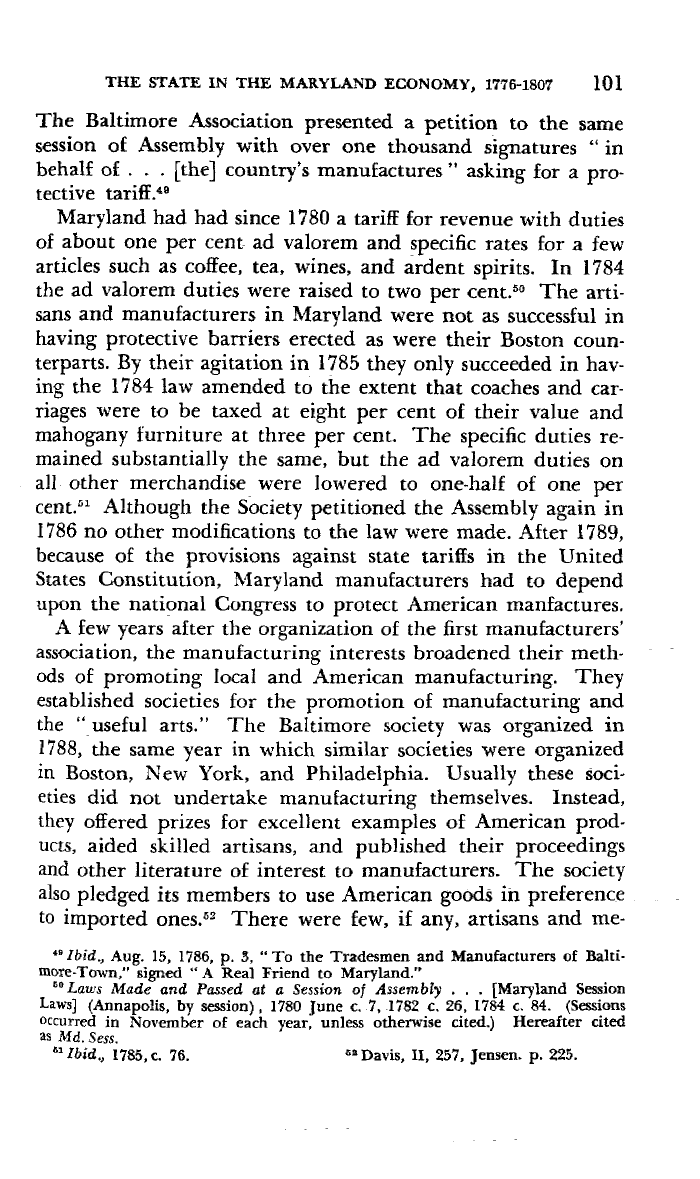| THE STATE IN THE MARYLAND ECONOMY, 1776-1807 101
The Baltimore Association presented a petition to the same
session of Assembly with over one thousand signatures " in
behalf of . . . [the] country's manufactures " asking for a pro-
tective tariff."
Maryland had had since 1780 a tariff for revenue with duties
of about one per cent- ad valorem and specific rates for a few
articles such as coffee, tea, wines, and ardent spirits. In 1784
the ad valorem duties were raised to two per cent.$° The arti-
sans and manufacturers in Maryland were not as successful in
having protective barriers erected as were their Boston coun-
terparts. By their agitation in 1785 they only succeeded in hav-
ing the 1784 law amended to the extent that coaches and car-
riages were to be taxed at eight per cent of their value and
mahogany furniture at three per cent. The specific duties re-
mained substantially the same, but the ad valorem duties on
all other merchandise were lowered to one-half of one per
cent." Although the Society petitioned the Assembly again in
1786 no other modifications to the law were made. After 1789,
because of the provisions against state tariffs in the United
States Constitution, Maryland manufacturers had to depend
upon the national Congress to protect American manfactures.
A few years after the organization of the first manufacturers'
association, the manufacturing interests broadened their meth-
ods of promoting local and American manufacturing. They
established societies for the promotion of manufacturing and
the "-useful arts." The Baltimore society was organized in
1788, the same year in which similar societies were organized
in Boston, New York, and Philadelphia. Usually these soci-
eties did not undertake manufacturing themselves. Instead,
they offered prizes for excellent examples of American prod-
ucts, aided skilled artisans, and published their proceedings
and other literature of interest to manufacturers. The society
also pledged its members to use American goods in preference
to imported ones.b-' There were few, if any, artisans and me-
" Ibid, Aug. 15, 1786, p. 3, " To the Tradesmen and Manufacturers of Balti-
more-Town," signed " A Real Friend to Maryland."
"Laws Made and Passed at a Session of Assembly . . [Maryland Session
Lawn (Annapolis, by session), 1780 June c. 7, -1782 c. 26, 1784 c. 84.
(Sessions
occurred in November of each year, unless otherwise cited.) Hereafter cited
as Md. Sess.
a"Ibid, 1785, c. 76. 8$ Davis, 11, 257, Jensen. p. 225.
|

